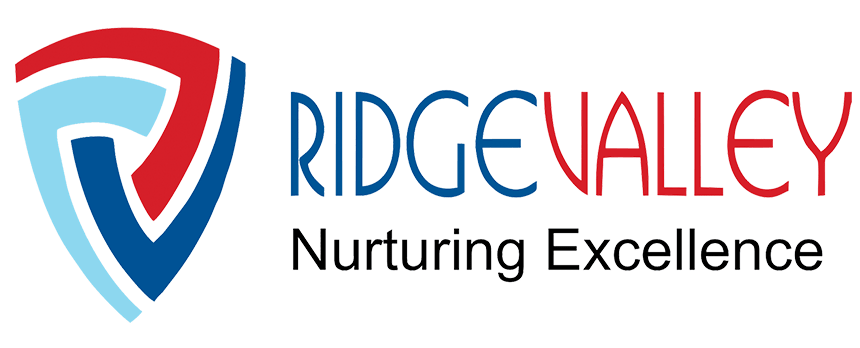Introduction:
Every child begins their learning journey with an innate sense of wonder. The right educational setting has the power to transform that natural curiosity into a lifelong love for learning. At Ridge Valley School, the top school in gurgaon where it understands that academic excellence is only one part of education — the real goal is to nurture confident, curious, and compassionate individuals who are ready to embrace the world with enthusiasm.
At Ridge Valley, the focus extends beyond textbooks. The school creates an environment where students feel safe to express ideas, explore their interests, and grow into self-assured learners. This supportive atmosphere doesn’t just shape academic achievement — it builds resilience, empathy, and leadership.
About Us:
At Ridge Valley School, we believe every child blossoms when learning is rooted in care, encouragement and exploration. Our priority is to build a supportive environment where students feel safe to ask questions, take risks and grow confidently. With a low student-teacher ratio, dedicated mentorship and well-designed “thinking spaces”, we empower each learner to discover their curiosity and nurture instincts. Beyond the curriculum, our extensive extracurricular offerings—from robotics and art studios to debate clubs and outdoor expeditions—provide students the freedom to experiment, create and express. Signature events like our annual Innovation Week, Science Park exhibitions and curated summer camps reinforce confidence through discovery. At the heart of our philosophy is the belief that when children feel valued and supported, curiosity becomes the engine of learning and confidence becomes a lifelong habit.
Understanding the Power of a Supportive Learning Environment
A supportive learning environment is one that recognizes every student’s individuality. It provides the right balance of guidance, encouragement, and freedom. When learners feel heard and valued, they naturally develop the confidence to take initiative and the curiosity to explore beyond the syllabus.
Such an environment celebrates differences and ensures that learning is not limited to classroom walls. It encourages collaboration, inquiry, and emotional well-being — elements that help students discover who they are and what they are capable of becoming.
Why Emotional Safety Builds True Confidence
Confidence grows when children feel emotionally secure. A classroom that prioritizes trust over fear empowers students to take academic risks without the anxiety of failure. They learn that mistakes are not setbacks but stepping stones toward growth.
In a school, teachers make sure every student feels acknowledged and included. Activities that promote self-expression — such as storytelling, debates, and creative arts — give learners a platform to showcase their ideas. Through supportive feedback, teachers guide students toward improvement rather than perfection.
This approach helps students become more resilient, open-minded, and self-assured — qualities that stay with them for life.
Curiosity as the Heart of Learning
Curiosity is the fuel of discovery. It inspires children to ask “why,” “how,” and “what if.” A truly effective learning environment keeps that curiosity alive by turning lessons into explorations rather than lectures.
At Ridge Valley, inquiry-based learning forms the foundation of classroom teaching. Instead of memorizing facts, students investigate concepts through projects, experiments, and discussions. Whether it’s exploring science through real-life phenomena or studying history through interactive storytelling, curiosity drives every lesson.
This methodology ensures that learning becomes a joyful, engaging process — one that builds analytical thinking, creativity, and innovation.
The Role of Teachers as Guides and Mentors
In any supportive school environment, teachers are more than instructors — they are mentors. They recognize the strengths and challenges of every learner and adapt teaching methods to suit different learning styles.
Educators at Ridge Valley believe that the best learning happens when students feel respected and motivated. Through continuous encouragement and personalized attention, teachers help learners overcome self-doubt and discover their potential.
A school invests in teacher development, ensuring that educators remain up-to-date with progressive teaching methods such as experiential learning, emotional intelligence training, and technology integration. This professional growth translates directly into more meaningful, engaging learning experiences for students.
Collaborative Learning: Building Confidence Through Teamwork
Confidence flourishes in environments where collaboration is valued. Group activities, classroom projects, and peer learning sessions teach students to communicate, cooperate, and lead effectively.
Collaborative classrooms promote empathy, patience, and respect for diverse opinions. Through teamwork, students learn that success is a shared effort, not a solo pursuit. They become active contributors, problem-solvers, and compassionate peers.
For instance, group science experiments, debates, or community service projects not only build subject knowledge but also teach real-world skills such as leadership, adaptability, and communication — all essential for future success.
Encouraging Creativity and Expression
A supportive environment gives students room to express themselves — whether through art, theatre, writing, or innovation. Creativity enhances confidence by helping children find their unique voice and showcase their talents.
Schools like Ridge Valley integrate creative learning experiences into everyday academics. Art exhibitions, literary festivals, and talent shows offer students platforms to shine beyond their academic achievements. These experiences also nurture emotional intelligence and self-awareness, essential traits in a holistic education system.
Such opportunities transform a school into a dynamic community of expression, exploration, and self-discovery.
The Connection Between Confidence and Extracurricular Activities
Education extends beyond classrooms. Extracurricular activities play a vital role in shaping a student’s confidence, discipline, and leadership skills. Sports, music, performing arts, robotics, and community service programs provide learners with diverse avenues for personal growth.
Participation in competitions and cultural events teaches teamwork, perseverance, and time management. Students learn to handle both victory and defeat with grace — a lesson that stays with them throughout life.
Through structured clubs and societies, students develop a sense of belonging and purpose, enhancing their overall school experience. This balance of academics and extracurriculars is what distinguishes a school from the rest.
Technology as a Tool for Curiosity and Engagement
Technology, when used mindfully, strengthens both curiosity and confidence. Digital learning tools allow students to visualize complex concepts and explore global perspectives. Smart classrooms, interactive boards, and AI-based platforms make learning more engaging and personalized.
However, the focus remains on guided learning — ensuring that technology complements, not replaces, human interaction. Students are taught digital responsibility, encouraging them to use technology for research, innovation, and creative problem-solving.
For example, coding workshops or virtual science labs help learners connect theory with real-world applications, fostering curiosity and critical thinking.
Fostering a Growth Mindset
One of the hallmarks of a supportive school is its emphasis on a growth mindset — the belief that abilities and intelligence can be developed with effort and perseverance.
Students are encouraged to view challenges as opportunities to learn rather than barriers to success. Teachers use positive reinforcement to celebrate progress, no matter how small. This approach builds resilience and self-confidence, teaching learners that success is achieved through continuous improvement.
In such environments, curiosity thrives because students aren’t afraid to explore or fail — they understand that learning is an evolving journey.
Inclusivity: The Foundation of Emotional Growth
True confidence grows in inclusive spaces. When students learn in diverse, accepting environments, they develop empathy and a broader worldview.
A school celebrates diversity through inclusive classrooms, cultural programs, and global exchange opportunities. Every child, regardless of ability or background, is given equal support to participate and succeed.
Inclusivity helps students appreciate different perspectives, promoting social harmony and kindness — traits that nurture not just academic confidence but emotional maturity as well.
Partnering with Parents for Holistic Development
The bond between school and home is essential in a child’s growth. Open communication between parents and teachers ensures consistency in learning and emotional support.
Workshops, orientation programs, and regular feedback sessions help parents stay involved in their child’s progress. Schools that maintain strong parent partnerships create an extended support system, reinforcing both curiosity and confidence in learners.
At Ridge Valley, parents are considered vital collaborators in the educational journey — contributing to a learning culture rooted in trust and shared responsibility.
Experiential Learning: Education Beyond Books
Experiential learning — or “learning by doing” — bridges the gap between theory and real-world application. Activities such as field trips, science fairs, and community service projects allow students to see how classroom knowledge applies to life around them.
This approach nurtures curiosity by giving students real experiences to explore and analyze. It also builds confidence as they take ownership of projects, present findings, and reflect on their learning outcomes.
For example, participating in environmental drives or entrepreneurial challenges helps learners understand social responsibility while gaining practical problem-solving skills.
Mindfulness and Wellbeing: Creating Calm and Focused Learners
A supportive learning environment also emphasizes mental health and emotional balance. Mindfulness programs, yoga, and meditation sessions help students stay focused, manage stress, and build self-awareness.
These practices promote clarity of thought, improve attention span, and enhance overall emotional stability. When learners feel calm and centered, they approach academics and challenges with confidence and curiosity.
Integrating wellness into daily routines ensures that education addresses not just intellectual but also emotional and spiritual well-being — a defining trait of a school.
Empowering Students Through Leadership Opportunities
Leadership programs and student councils allow learners to take initiative, make decisions, and contribute positively to the school community. Being entrusted with responsibilities helps them develop confidence, accountability, and problem-solving abilities.
When students organize events, lead discussions, or represent their peers, they experience real-world leadership early on. This empowerment gives them the courage to voice ideas and the curiosity to explore innovative solutions — preparing them to be responsible citizens and change-makers of tomorrow.
Building Future-Ready Learners
A supportive school environment doesn’t just focus on immediate academic goals; it prepares students for future challenges. By nurturing adaptability, emotional intelligence, creativity, and ethical decision-making, schools equip learners with the skills needed for the 21st century.
Confidence gives them the strength to take initiative, while curiosity drives lifelong learning. Together, these traits form the foundation of future-ready individuals — capable of navigating a rapidly changing global landscape with courage and curiosity.
Why Parents Prefer a Good School
Parents today seek more than academic results; they look for schools that prioritize character, creativity, and care. A school blends strong academics with emotional intelligence, global awareness, and inclusive learning practices.
These schools focus on overall growth — encouraging curiosity through experiential education and confidence through supportive mentorship. Their environments promote happiness, mental well-being, and a lifelong passion for learning — making them ideal places for children to thrive.
Conclusion:
A supportive learning environment transforms education into an empowering experience. At Ridge Valley School, the best school in gurgaon where when children feel secure, respected, and inspired, they learn with confidence and question with curiosity.
Such environments prepare students not just for exams, but for life — equipping them to think independently, act compassionately, and lead responsibly.
A school, like Ridge Valley, exemplifies this philosophy — blending academic excellence with emotional nurturing. It’s where every learner is encouraged to explore freely, grow fearlessly, and become the best version of themselves.
Because when confidence and curiosity meet, education becomes more than learning — it becomes transformation.
FAQs:
Q. 1 What defines a supportive learning environment?
Ans : A space where students feel safe, valued, and encouraged to express ideas freely.
Q. 2 How does support in classrooms boost confidence?
Ans : Positive feedback and emotional safety empower students to take academic risks.
Q. 3 Why is curiosity important in a child’s learning journey?
Ans : Curiosity fuels exploration, creativity, and a genuine love for lifelong learning.
Q. 4 How do teachers nurture curiosity in learners?
Ans : By encouraging open-ended questions, discussions, and hands-on experiences.
Q. 5 What role do peers play in building student confidence?
Ans : Collaborative learning helps students share ideas and grow through teamwork.
Q. 6 How does emotional wellbeing influence learning outcomes?
Ans : A balanced, supportive environment enhances focus, motivation, and resilience.










